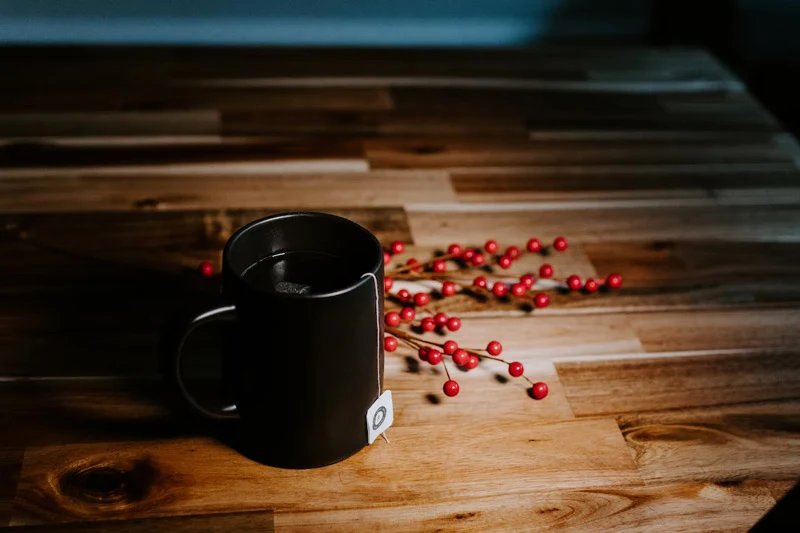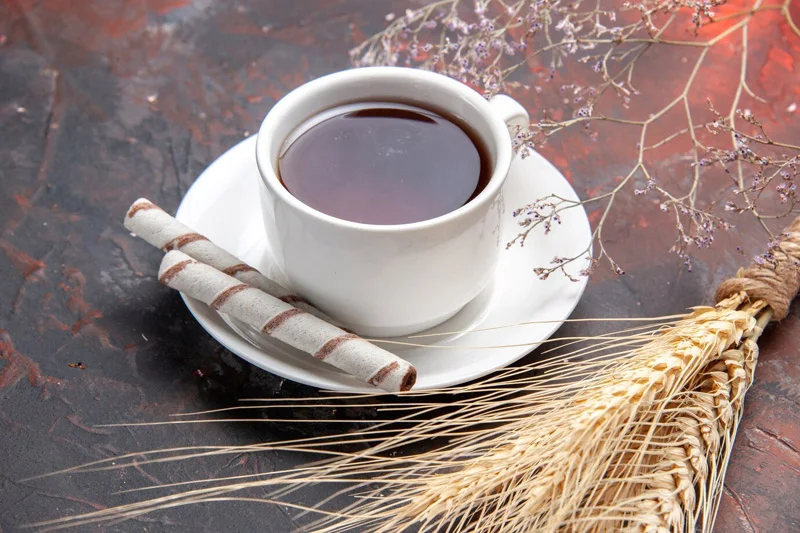![[feature] 12 Healthy and Delicious Coffee Alternatives to Boost Your Energy and Focus](https://blogger.googleusercontent.com/img/b/R29vZ2xl/AVvXsEjI2eh1GzZ0fqLPg5xvNlAZ28GI2O1SijKDk6U386UyZE3a9wTYECjCqvXdn1GyVW_PMjowk6Fg0rUoKoDLRZS1wPlMXXONYbloq_FcSnSqLRXz5szXDOlvOpZ_hR-G0kv8Nc33IgMq16n3zkSli6-gFTzs184vjjDwDXGoRoSAW8NoSNjUPu7g4cKE8es/s1600-rw/health-drink.jpg) |
| Coffee alternatives can provide similar taste and benefits as coffee. Photo: Freepik |
By
Are you looking for a way to boost your energy and focus without relying on coffee? While coffee can provide a temporary energy boost, it also comes with potential downsides such as caffeine dependency, sleep disruption, and digestive issues. Fortunately, there are several healthy and delicious alternatives to coffee that can provide similar benefits without the negative side effects. In this article, we will explore some of the best coffee alternatives that can help you stay energized and focused throughout the day. From herbal teas to fruit smoothies, we've got you covered with a variety of options to suit your tastes and lifestyle. So, whether you're trying to cut back on caffeine or simply looking to mix up your routine, read on to discover some of the best coffee alternatives you should try.
Read More: 10 Signs You Should Cut Back on Coffee
Why should you stop drinking coffee?
While coffee can boost energy and mental alertness, there are several reasons why someone may want to limit or avoid their coffee consumption:
- Caffeine dependency: Regularly consuming high amounts of caffeine can lead to dependency, which can result in withdrawal symptoms such as headaches, fatigue, and irritability.
- Sleep disruption: Consuming coffee too close to bedtime can disrupt sleep patterns and make it difficult to fall asleep or stay asleep throughout the night.
- Increased anxiety: Caffeine can increase the levels of stress hormones in the body, leading to feelings of anxiety and jitters.
- Negative effects on digestion: Coffee can stimulate the production of stomach acid, leading to acid reflux and other digestive issues.
- Dehydration: Coffee is a diuretic, meaning it can increase urine output and lead to dehydration if not consumed in moderation.
While moderate coffee consumption (1-2 cups per day) is generally considered safe for most people, it's important to be aware of the potential downsides and make informed decisions about your caffeine intake.
Is caffeine important for a healthy lifestyle?
Caffeine can have some benefits for a healthy lifestyle when consumed in moderation. It can boost alertness, increase physical performance, and enhance cognitive function. However, it's important to be aware of the potential downsides of consuming too much caffeine. Additionally, some people may be more sensitive to caffeine than others and may experience negative side effects even with moderate consumption. In short, while caffeine can be part of a healthy lifestyle when consumed in moderation, it's important to be mindful of its potential effects and make informed decisions about its consumption.
Read More: How to Counteract High Caffeine Consumption
Here are some coffee alternatives that contain less caffeine than regular coffee:
Yerba mate
 |
| Yerba mate can boost energy and focus. Photo: Freepik |
Yerba mate is a type of tea that is popular in South America. It contains caffeine and other compounds that can provide a boost in energy and focus.
Yaupon tea
 |
| Yaupon tea has antioxidants and other beneficial compounds. Photo: Kelly Sikkema, Unsplash |
Yaupon tea is a type of tea that is native to North America. It contains caffeine, but in smaller amounts than coffee, and also contains antioxidants and other beneficial compounds. Yaupon tea has a slightly sweet and earthy flavor.
Decaf coffee
 |
| Decaf coffee has 2-5 milligrams caffeine per 8-ounce cup. Photo: Freepik |
Decaf coffee is made by removing most of the caffeine from regular coffee beans. It contains only a small amount of caffeine, usually about 2-5 milligrams per 8-ounce cup.
Green tea
 |
| Green tea contains less caffeine than coffee. Photo: zirconicusso, Freepik |
Green tea contains caffeine, but in lower amounts than coffee. It also contains antioxidants and other beneficial compounds that can boost health.
Matcha
 |
| Matcha is made by grinding tea leaves into a fine powder. Photo: Jason Leung, Unsplash |
Matcha is a type of green tea that is made by grinding tea leaves into a fine powder. It contains more caffeine than regular green tea, but still less than coffee.
Caffeine-free coffee alternatives
If you're trying to avoid caffeine, there are several coffee alternatives that are caffeine-free and can provide similar taste and benefits. Some of the best caffeine-free coffee alternatives include:
Dandelion root coffee
 |
| Dandelion root coffee has similar aroma to coffee. Photo: mdjaff, Freepik |
Dandelion root coffee is a caffeine-free alternative to coffee that is made by roasting dandelion roots. It has a similar taste and aroma to coffee.
Chicory root coffee
 |
| Chicory root has a slightly bitter taste like coffee. Photo: stockimagefactorycom, Freepik |
Chicory root is roasted and brewed like coffee and has a slightly bitter taste that is similar to coffee.
Roasted grain beverages
 |
| Roasted grain beverages have a nutty, toasty flavor is similar to coffee. Photo: KamranAydinov, Freepik |
These are made from roasted grains such as barley, rye, and wheat. They have a nutty, toasty flavor that is similar to coffee.
Carob powder
 |
| Carob powder can be used as a coffee substitute. Photo: azerbaijan_stockers, Freepik |
Carob powder is a natural sweetener that can be used as a coffee substitute. It has a chocolaty flavor and is rich in antioxidants.
Golden milk
 |
| Golden milk has anti-inflammatory properties. Photo: azerbaijan_stockers, Freepik |
This is a traditional Indian drink made from turmeric, ginger, and other spices. It has anti-inflammatory properties and can be a soothing alternative to coffee.
Fruit smoothies
 |
| Smoothies provide a natural source of energy and nutrients. Photo: Freepik |
Smoothies made with fresh fruit, yogurt, and other healthy ingredients can provide a natural source of energy and nutrients without the caffeine.
Coconut water
 |
| Coconut water can hydrate your body. Photo: jcomp, Freepik |
Coconut water is a natural source of electrolytes and can help hydrate the body and provide a boost in energy.
Read More: How Much Coffee You Can Drink Before It's Dangerous
Overall, there are many caffeine-free coffee alternatives that can provide a similar taste and benefits to coffee without the negative effects of caffeine.
























